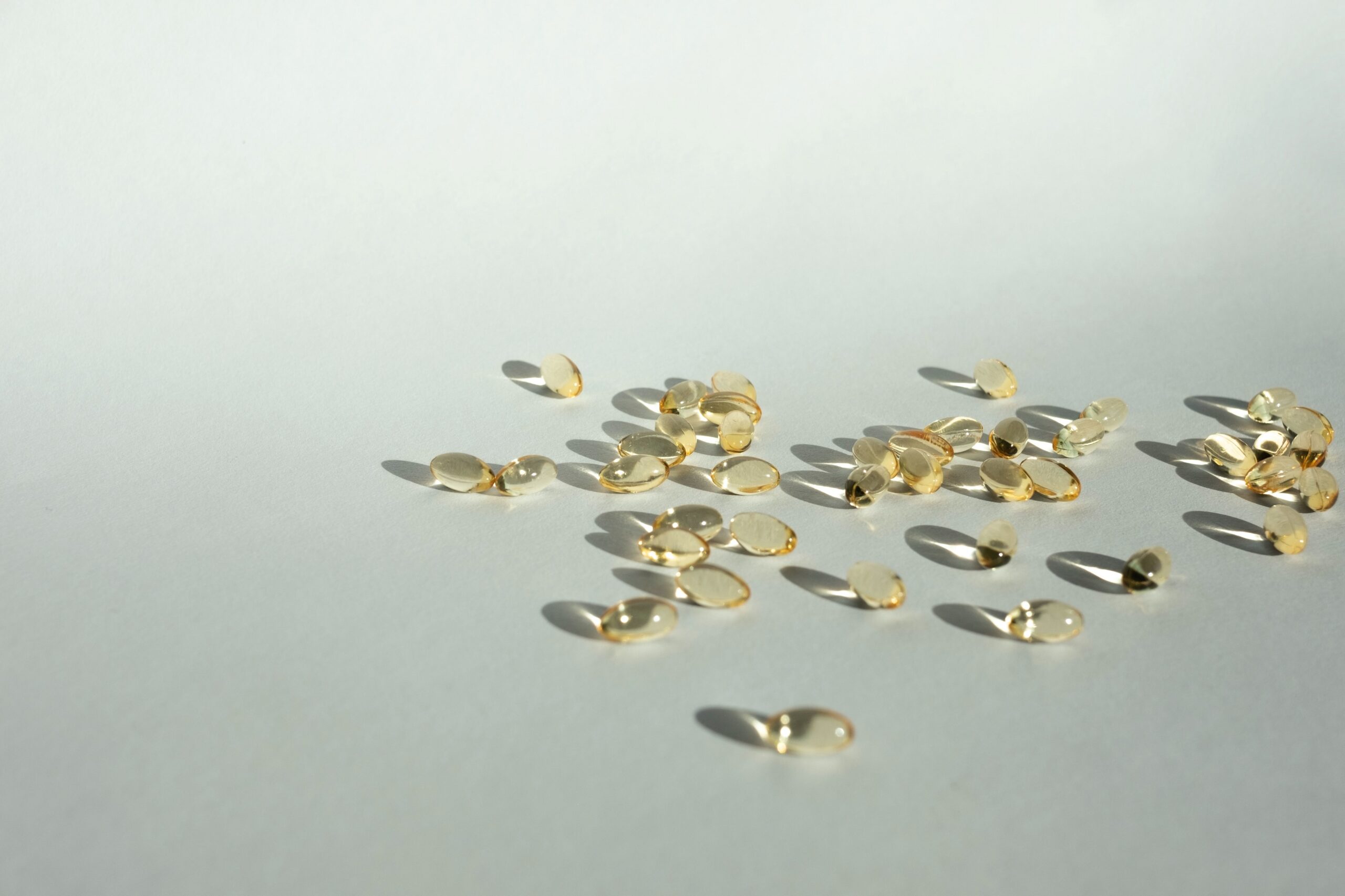Omega 3 Fatty Acids for Heart Health
Omega 3 fatty acids is one of the essential nutrients that our body is unable to produce and must be obtained from our daily diet. Omega 3 fatty acids are incredibly important as it provides various health benefits. There are 2 types of omega 3 fatty acids namely Eicosapentaenoic acid (EPA) and Docohexanoic acid (DHA). Omega 3 fatty acids quickly rose as one of the most popular supplements out there as numerous health benefits have been discovered. Some of the most popular claims include its cardioprotective and anti-inflammatory properties. Cardiovascular diseases like heart attack and stroke are the major killer among Malaysians. According to the Department of Statistics Malaysia, 15.6% and 7.8% of the total cause of death in Malaysia in 2018 are from ischemic heart disease (IHD) and cerebrovascular diseases and they are on an ascending trend.
Decades ago, researchers observed that communities with a diet predominantly with fish have relatively lower risk of cardiovascular diseases. This was likely linked to high omega-3 fatty acids consumption1. A health survey was conducted in 1990 to 1992 on 3 ethnic groups Quebecers, Cree, 57b and Inuit with average daily omega-3 fatty acid consumption of 13, 60, and 131 g; this report shows that concentrations of omega-3 fatty acids in plasma phospholipid were highest among Inuit, followed by Cree and Quebecers2; which indirectly increase the level of good cholesterol; which is also known as HDL-cholesterol. Since then, more studies were conducted to discover the heart-related health benefits of omega-3 fatty acids consumption.3
Omega-3 fatty acids can cause a reduction of serum triglyceride level. A group of patients with type 2 diabetes mellitus were given 2g purified omega-3 fatty acid daily for 10 weeks. Patients receiving 2g omega-3 fatty acid daily for 10 weeks exhibited significant reduction in fasting triglycerides level as compared to those who were receiving placebo4. There are findings that exhibit the beneficial effect of omega-3 fatty acid in reducing blood pressure among those with hypertension. An 8-week study on 324 overweight or obese young adult exhibits a significant reduction in diastolic blood presse (BP) when they were given daily dose 2.1g omega-3 fatty acid5.
Interestingly, omega-3 fatty acids can be included in the diet to improve the serum HDL-cholesterol level (the good cholesterol). A study in 1989 had divided 34 subjects into one of four groups; which are fish oil & exercise (FE), fish oil (F), corn oil (CN) and placebo. At the end of the study, participants that received fish oil and fish oil in combination with exercise exhibited significant improvement in HDL level as compared to other participants6. Besides, omega-3 fatty acid is able to keep platelets from clumping together; thus, helps to prevent the formation of harmful blood clots. GISSI-Prevenzione study randomly assigned 11,323 participants into omega-3 fatty acid (1g/day), 300mg Vitamin E, the combination of omega-3 fatty acid & vitamin E and placebo. At the end of the study, participants in the omega-3 fatty acid group reported significant lower in total mortality rate and sudden death rate; these findings support the hypothesis of an antiarrhythmic effect of omega-3 fatty acids.7
Lastly, omega 3 fatty acid is found to reduce pro-inflammatory cytokines that if not treated will cause damage to the blood vessel as well as the cardiac muscle. Randomized-controlled trials of using omega 3 fatty acid supplementation show to reduce pro-inflammatory cytokines like tumor-necrosis factor (TNF-α), C-reactive protein and interleukin-6 8 & 9. Apart from reducing the synthesis of pro-inflammatory cytokines, omega-3 fatty acid supplementation is shown to increase the formation of anti-inflammatory cytokines such as leukotriene B5 (LTB5) 10.
As a conclusion, omega 3 fatty acids can be included into our daily diet and supplementation as it offers various heart health benefits; which may provide protection against non-communicable diseases.
- Leaf A. Historical overview of n-3 fatty acids and coronary heart disease. Am J Clin Nutr. 2008 Jun;87(6):1978S-80S
- Dewailly E, Blanchet C, Gingras S, Lemieux S, Holub BJ. Fish consumption and blood lipids in three ethnic groups of Québec (Canada). Lipids. 2003 Apr;38(4):359-65
- Jacob, J., Peter, S., & Chopra, S. (2013). A fish a day keepsthe cardiologist away! – A review of the effect of omega-3 fatty acids in the cardiovascular system. Indian Journal of Endocrinology and Metabolism, 17(3), 422. doi:10.4103/2230-8210.111630
- Shidfar F, Keshavarz A, Hosseyni S, Ameri A, Yarahmadi S. Effects of omega-3 fatty acid supplements on serum lipids, apolipoproteins and malondialdehyde in type 2 diabetes patients. East Mediterr Health J. 2008 Mar-Apr;14(2):305-13
- Ramel A, Martinez JA, Kiely M, Bandarra NM, Thorsdottir I. Moderate consumption of fatty fish reduces diastolic blood pressure in overweight and obese European young adults during energy restriction. Nutrition. 2010 Feb; 26(2):168-74.
- Warner JG Jr, Ullrich IH, Albrink MJ, Yeater RA. Combined effects of aerobic exercise and omega-3 fatty acids in hyperlipidemic persons. Med Sci Sports Exerc. 1989 Oct;21(5):498-505
- Marchioli R, Barzi F, Bomba E, Chieffo C, Di Gregorio D, Di Mascio R, Franzosi MG, Geraci E, Levantesi G, Maggioni AP, Mantini L, Marfisi RM, Mastrogiuseppe G, Mininni N, Nicolosi GL, Santini M, Schweiger C, Tavazzi L, Tognoni G, Tucci C, Valagussa F; GISSI-Prevenzione Investigators. Early protection against sudden death by n-3 polyunsaturated fatty acids after myocardial infarction: time-course analysis of the results of the Gruppo Italiano per lo Studio della Sopravvivenza nell’Infarto Miocardico (GISSI)-Prevenzione. Circulation. 2002 Apr 23;105(16):1897-903
- Rizza S, Tesauro M, Cardillo C, Galli A, Iantorno M, Gigli F, Sbraccia P, Federici M, Quon MJ, Lauro D. Fish oil supplementation improves endothelial function in normoglycemic offspring of patients with type 2 diabetes. Atherosclerosis. 2009 Oct;206(2):569-74
- Ciubotaru I, Lee YS, Wander RC. Dietary fish oil decreases C-reactive protein, interleukin-6, and triacylglycerol to HDL-cholesterol ratio in postmenopausal women on HRT. J Nutr Biochem. 2003 Sep; 14(9):513-21
- Thusgaard M, Christensen JH, Mørn B, Andersen TS, Vige R, Arildsen H, Schmidt EB, Nielsen H. Effect of fish oil (n-3 polyunsaturated fatty acids) on plasma lipids, lipoproteins and inflammatory markers in HIV-infected patients treated with antiretroviral therapy: a randomized, double-blind, placebo-controlled study. Scand J Infect Dis. 2009;41(10):760-6


